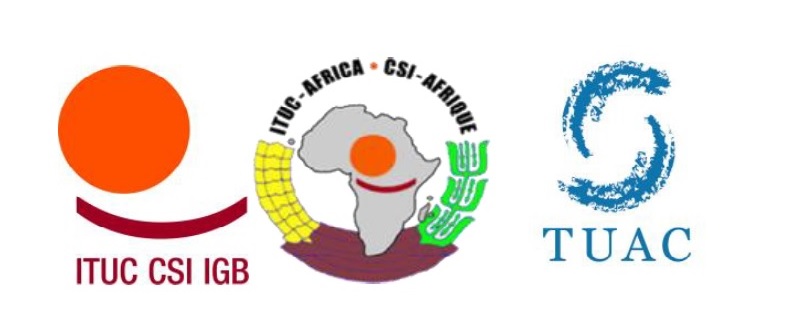
Capacity building and resource for tax administrations in African countries
A year after its creation at the request of the G20, 99 countries, including many African countries, participated in the Inclusive Framework for the implementation of the BEPS Action Plan. While the objective of broad participation is achieved by the numbers, there is still uncertainty as to the effective participation of developing countries in the process, both in the policy discussion on future developments around the BEPS package, and in the implementation of current BEPS measures and minimum standards.
The Inclusive Framework includes the development of toolkits and of targeted support initiatives (“tax inspectors without borders”) to help developing countries implement the BEPS measures. Implementation of the BEPS package however will put tax administrations under stress, particularly those of African countries. Priority should be given to increase development aid to support tax administrations.
Tax matters to all, not just to business and the tax collector.
It would be wrong to assert that tax accountability of multinational enterprises (MNEs) would matter for tax administrations only or that stakeholder dialogue should essentially be limited to the MNEs themselves. Yet, too often business groups have in the past benefited from a strong position in stakeholder consultation. The privileged treatment of the Business and industry advisory committee to the OECD is in fact enshrined in the OECD Transfer Pricing Guidelines where it addresses stakeholder dialogue. The choice to put weight on technicalities and legal aspects in the initial design of the BEPS process, rather than on broad policy choices and principles, did not help level playing field between the insiders (the tax experts and advisers) and the outsiders (including civil society and unions).
We contest the view that BEPS issues only matter for tax collectors and governments and for business groups. The impact of tax avoidance practices by MNEs is not limited to government revenues. Workers employed by MNEs can also be impacted. Trade unions have provided evidence that aggressive tax planning schemes can weaken the rights of workers employed by the MNE to decent wages and to a fair share of the wealth and profits created by the MNEs, to collective bargaining and to information and consultation (when aggressive tax planning schemes leads to corporate fragmentation)i.
Engaging dialogue on a public version of the country-by-country reporting
Trade unions regret that the final agreement on BEPS Action Nb 13 excludes any possibility for public disclosure. To the contrary, the OECD agreement sets very strict confidentiality requirements for exchange of information. As the implementation is now unfolding, these secrecy requirements are proving to be counter-productive. Many countries are struggling to meet the legal and technological conditions to satisfy the confidentiality requirements for exchange of information between tax administrations. An excessive amount of resource and policy space is now devoted to the technicalities and legalities of these arrangements. Ironically, the pros and cons of a public reporting system were never discussed at the OECD during the BEPS process in 2013-2015. Public reporting was excluded from the discussion right from the beginning without any contradictory debate.
Trade unions firmly believe that public reporting is desirable to account for the global footprint of MNEs and contest the view according to which the public disclosure of the information contained in the reporting framework could threaten business confidentiality rights and trade secrets. Public disclosure would help workers have confidence – or not – in their fair share of the wealth created by the company. Long term investors also agree that access to public reporting would contribute to make informed judgment on the long term sustainability of the business models of MNEs. The PRI, representing 1500 financial institutions, with an aggregate USD60tr recently expressed support for the BEPS 13 reporting framework to be made publicii.
Measuring and reporting on the impact of BEPS measures
Members of the Inclusive Framework should also ensure effective monitoring and measurement of the impact of implementation of the Action Plan. The report on measuring BEPS practices (Action nb 11) identifies six potential indicators. The OECD acknowledges however that it would be almost impossible to deliver reporting on these indicators on a consistent and comprehensive manner, because access to MNEs’ data is severely restricted by confidentiality requirements.
The lack of data to effectively measure the impact of the BEPS Action Plan reinforces the case for the public disclosure of country-by-country reporting framework. That is why the Inclusive Framework should request that some of the 6 indicators of the BEPS Action Nb 11 be reported by MNEs directly. Furthermore, as part of the implementation of BEPS Action Nb 13, it is understood that the OECD Secretariat will receive the data of the reports on an anonymized level. These data should not become proprietary information of the OECD. They should be made public.
Next steps
Considering the above, the Inclusive Framework should:
Ensure priority is given to capacity building of tax administrations in developing countries, beyond the current ad hoc initiatives that are foreseen, and put in place a monitoring systems to that end;
Engage a policy discussion on a public version of the BEPS Action Nb 13 country-by-country reporting framework;
Require MNEs subject to the above reporting framework to report on relevant BEPS Action Nb 11 indicators; and
Request the OECD Secretariat to make public the data that it will receive on an anonymised level from the upcoming first round of BEPS Action Nb 13 reports in 2018.
Contact
ITUC-Africa: Joel Odigie, Coordinator, joel.odigie@ituc-africa.org
TUAC: Pierre Habbard, Senior Policy Advisor, habbard@tuac.org
